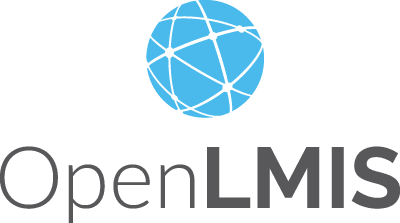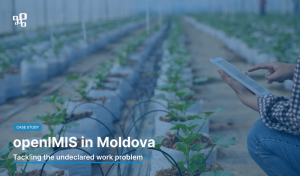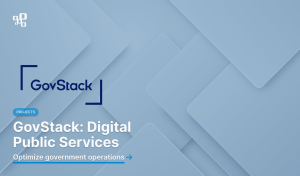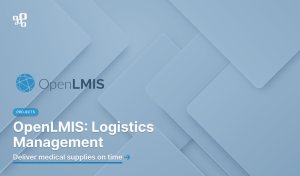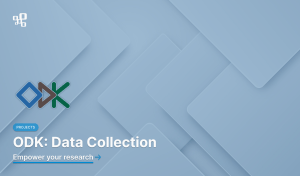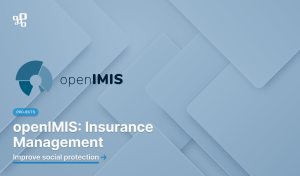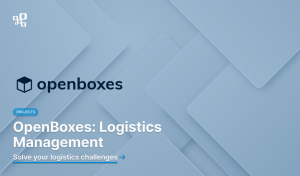It is a sad fact that, as health systems continue to experience stock-outs of essential medicines, inhabitants of the so-called ‘low-resource’ settings are often left vulnerable to treatable illness. It is especially true for Africa where health care systems are constantly struggling with a variety of challenges. Fortunately, it is where modern digital technology can come to the rescue. By employing cutting-edge technologies and industry best practices, it is possible to make global health supply chains more efficient and – as a result – reach more people. Managing medicines stock shortages in remote health facilities with one click of a button? Yes, it’s possible! A great example of that is OpenLMIS 3.0 and its successful implementation in Malawi.
OpenLMIS beginnings in Malawi
OpenLMIS is an open-source web-enabled electronic logistics management information system that serves over 11,000 health facilities across Africa. Its main role is reducing stock inefficiencies and improving health outcomes in an affordable way – it does so by transforming and optimizing global and national health supply chains. It has easily outclassed old LMIS systems that evolved to be outdated and inadequate for routine supply chain data collection needs.
That was exactly the case in Malawi. As previously used Supply Chain Manager (SCMgr), a stand-alone Microsoft Access-based application turned out not to be enough, the Malawi Ministry of Health started looking for new solutions. In August 2017, it collaborated with Chemonics International (GHSC – PSM Project) and VillageReach to implement OpenLMIS version 3.0 countrywide. As our SolDevelo team, together with VillageReach, worked on a complete remake of the core software for the OpenLMIS 3.0 version, we have naturally been involved in OpenLMIS deployment and maintenance in Malawi. One of our tasks was to migrate the historical data from the legacy system to OpenLMIS so that the users could still access and view necessary information from the past years. We have also been responsible for setting up the infrastructure and loading the initial data into the system, such as available health commodities, health facilities, system users, and more.
Nowadays OpenLMIS 3.0 is being used at 43 data entry sites in 28 Malawian districts to capture data for 690 health facilities, including five central hospitals. Thanks to the significant amount of data reported in OpenLMIS, it is much easier to make informed decisions on key supply chain interventions, such as quantification, supply planning, and monitoring of medicines uptake – especially in case of tuberculosis (TB), reproductive health, HIV, and malaria.
How OpenLMIS 3.0 transforms Malawi’s health supply chain

GHSC-PSM is one of eight projects in the USAID Global Health Supply Chain Program that connects technical solutions, experts, and proven commercial processes to promote efficient and cost-effective health supply chains worldwide. All of them are intended at achieving stronger and more effective health supply chains by ensuring an interrupted stream of quality health products and services to millions of people in need.
Thanks to the USAID GHSC-PSM, OpenLMIS 3.0 is significantly improving operations and outcomes for the Ministry of Health in Malawi. With such an effective tool at their disposal, health facilities in this country are collecting reliable data that ensure lifesaving medicines and supplies reach their final destination.
In Malawi, OpenLMIS 3.0 manages reporting of data to health technical support services and the ordering of essential medicines and medical supplies from Central Medical Stores Trust (CMST). It makes it possible for Malawian health professionals to control medical stocks, reduce theft of medicines and medical supplies, and improve overall health services. What does it exactly mean?
Increasing data quality and visibility
First of all, OpenLMIS 3.0 provides instant live access to data as LMIS reports are being captured. The system helps in providing feedback with health facilities in the form of reports. On the basis of these reports, it is possible to see where some drugs are overstocked and where some of them are understocked. Secondly, OpenLMIS also offers offline functionality that enables data entry even when internet connectivity is interrupted. Coupled to this, it has facilitated efficiency along the supply chain by reducing the need to travel long distances to submit orders – and because of the latter, it helps in saving in terms of cost of transport, too. OpenLMIS also ensures the quality of data by instantly alerting users when the numbers entered into the system are arithmetically incorrect. In other words, it is able to carry over the closing balance of the previous month to the current month – in this way, it is able to tell if the figures are correlating or not.
What is more, OpenLMIS 3.0 is a dual system that has reporting and ordering capabilities. It makes the ordering process easier because there is one platform that is used to report and, based on the reports, order for the coming month. Prior to the introduction of OpenLMIS, Malawi’s Ministry of Health used three systems for health logistics operations: SCMgr for reporting; MicrosoftExcel for data aggregation, analysis, and report generation; and the CMST online tool for ordering commodities. Thanks to the introduction of OpenLMIS, users can now report, place orders, and view LMIS reports in one application.
Lesson learned
It is more than obvious that health facilities and service providers in low-resource settings need a reliable way to order medical commodities, track their inventory, and report all the necessary health commodities. OpenLMIS 3.0, a state-of-the-art management information system, proves a perfect tool to do just that. As it integrates supply chains in various health areas into one efficient supply chain, it helps in ensuring that health commodities are delivered on time to many of Malawi’s most vulnerable and difficult-to-reach communities. At SolDevelo, we’re always happy and proud to work on solutions that have a significant global impact. In the case of OpenLMIS 3.0, we can be sure that the work we did is really changing the world – and all of it thanks to an extraordinary collaboration of organizations and individuals around the world.

